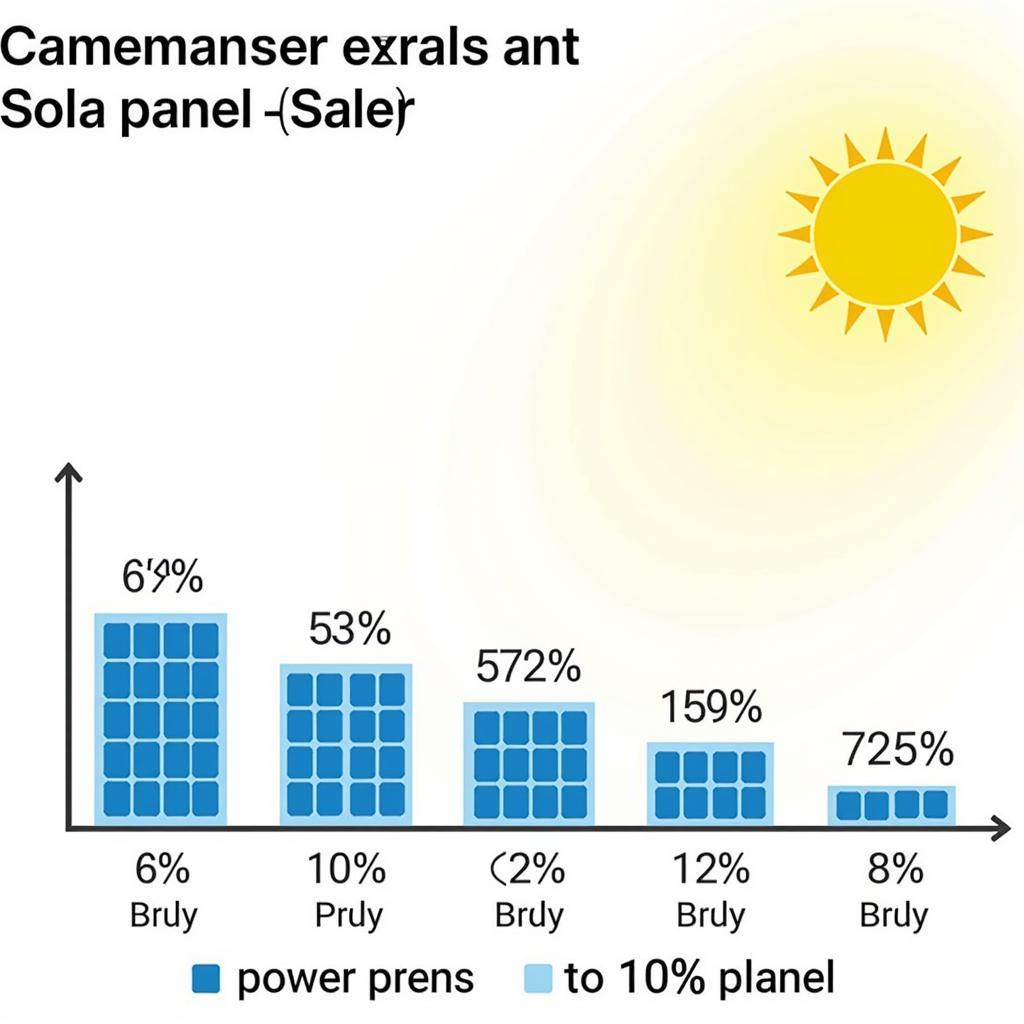Solar panel specifications are crucial for determining the efficiency and lifespan of a solar energy system. Understanding these parameters helps you choose the right panels for your needs and budget. This article provides detailed information about the essential technical specifications of solar panels.
Understanding Solar Panel Wattage (Wp)
Panel wattage, measured in watt-peak (Wp), indicates the maximum power a solar panel can produce under Standard Test Conditions (STC). STC is defined as solar irradiance of 1000W/m², cell temperature of 25°C, and air mass of 1.5. Choosing the appropriate panel wattage depends on your energy consumption needs. A larger system will require more panels with higher wattage.
Are you looking for solar panels for your home? Consider the wattage of each panel to ensure it meets your electricity needs.
Solar Panel Efficiency
Solar panel efficiency represents the percentage of sunlight converted into electricity. Higher efficiency panels generate more electricity from the same surface area. This specification typically ranges from 15% to 20%. Opting for high-efficiency panels helps optimize installation space, especially when space is limited.
Higher efficiency means maximizing solar energy utilization.
Panel Voltage (V)
Panel voltage, measured in volts (V), represents the electrical potential difference generated by the panel. There are two main types of voltage: open-circuit voltage (Voc) and maximum power point voltage (Vmp). Voc is the voltage when the panel is not connected to a load, while Vmp is the voltage when the panel operates at its maximum power point. Voltage specifications are important when designing the system and selecting a suitable charge controller.
Panel voltage affects the design and operation of the entire system.
Panel Current (A)
Panel current, measured in amperes (A), represents the intensity of the electric current generated by the panel. Similar to voltage, there are two main types of current: short-circuit current (Isc) and maximum power point current (Imp). Isc is the current when the two terminals of the panel are short-circuited, while Imp is the current when the panel operates at its maximum power point.
Panel current is a crucial factor in determining the energy supply capability to the load.
Solar Panel Operating Temperature
Operating temperature affects the efficiency of solar panels. Typically, efficiency decreases as temperature increases. The Temperature Coefficient of Pmax indicates the rate of power reduction as temperature rises. Choosing panels with a low-temperature coefficient helps maintain stable performance in high-temperature conditions.
Temperature is a factor to consider when evaluating the real-world performance of solar panels.
Solar Panel Size and Weight
Panel size and weight are important factors when choosing an installation location and designing the system. Ensure that the installation space is large enough and the roof structure is strong enough to support the weight of the panels.
Size and weight impact the installation and system design.
Conclusion
Understanding solar panel technical specifications is a crucial step in selecting the right product for your needs and budget. By considering factors such as wattage, efficiency, voltage, current, operating temperature, size, and weight, you can optimize the performance and lifespan of your solar energy system. Contact us for more detailed advice on solar panel technical specifications.
FAQ
- What is solar panel wattage (Wp)?
- How does solar panel efficiency affect system performance?
- What is the significance of panel voltage and current?
- How does temperature affect solar panel efficiency?
- How important are solar panel size and weight for installation?
- How to choose the right solar panel for my needs?
- Where can I find detailed information about solar panel specifications?
Common Customer Questions
Customers often ask about the panel wattage needed for their homes, the efficiency of different types of panels, and how to calculate the number of panels required. They are also interested in the impact of temperature and shading on system performance.
Suggested Further Reading on Our Website
You can learn more about different types of solar panels, the pros and cons of each type, and how to maintain your system on our website.
